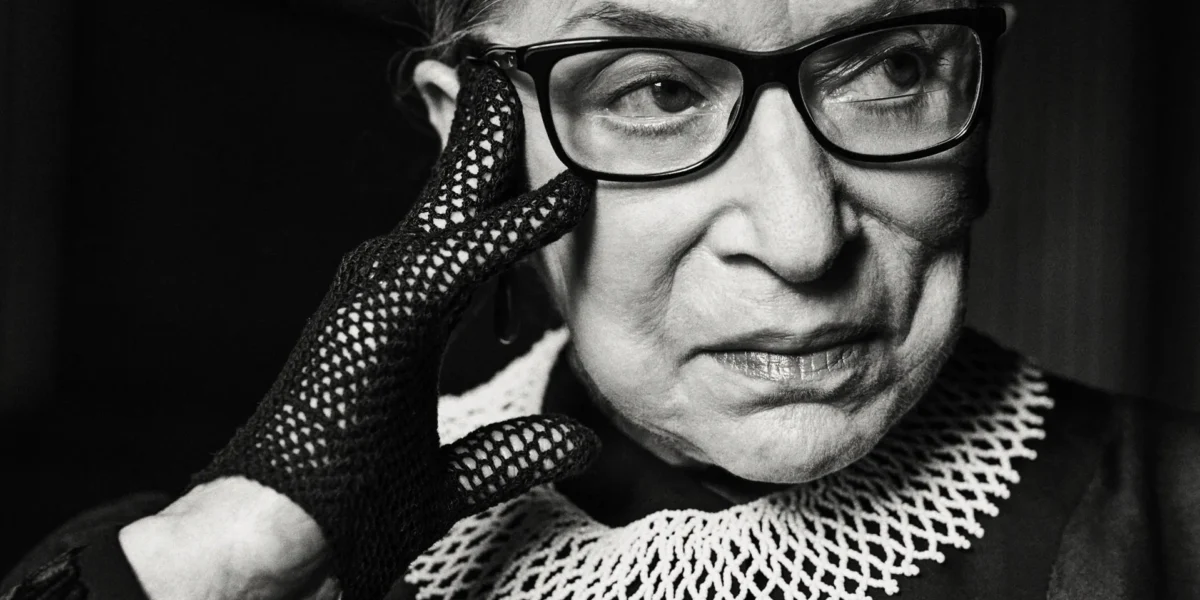A Legacy of Justice and Equality
Today marks the 3-year anniversary of the passing of Ruth Bader Ginsberg. The Teen Think Tank Project staff explores the life, legacy, and impact of this gender equity pioneer. (Photo Credit: Sebastian Kim / New Yorker)
Introduction
On September 18, 2020, the United States lost a legal icon and a champion of justice and equality, Justice Ruth Bader Ginsburg. Her passing marked the end of an era in American jurisprudence and sent shockwaves across the nation. In this blog post, we will delve into the life and legacy of Justice Ginsburg, her impact on the Supreme Court, and her enduring influence on the pursuit of justice and equality for all.
Early Life and Legal Career
Ruth Bader was born on March 15, 1933, in Brooklyn, New York. Despite facing gender-based discrimination early in life, she excelled academically and attended Harvard Law School, where she was one of the few women in her class. Her legal career began at a time when women faced immense barriers in the profession, yet she persevered, ultimately graduating at the top of her class from Columbia Law School.
Breaking Gender Barriers
One of the key themes of Justice Ginsburg’s life was her tireless commitment to breaking gender barriers. After graduating from law school, she faced widespread gender discrimination, struggling to find a job despite her impressive qualifications. She eventually secured a clerkship and began teaching law. Her experiences as a woman in a male-dominated field fueled her determination to challenge discriminatory laws and practices
Advocacy for Gender Equality
The Equal Rights Amendment (ERA): Ruth Bader Ginsburg was a staunch advocate for the Equal Rights Amendment, which aimed to prohibit discrimination on the basis of sex. She believed that achieving gender equality required constitutional protection, and she fought for the ERA throughout her career.
Landmark Cases: As a lawyer with the American Civil Liberties Union (ACLU), Ginsburg worked on several landmark cases challenging discriminatory laws. One of her most notable cases was Reed v. Reed (1971), in which the Supreme Court ruled that gender-based discrimination violated the Equal Protection Clause of the Fourteenth Amendment.
Appointment to the Supreme Court
In 1993, President Bill Clinton appointed Ruth Bader Ginsburg to the Supreme Court, making her the second woman to serve on the highest court in the land. During her confirmation hearings, she eloquently articulated her commitment to gender equality and her belief in the Constitution as a living document that could evolve to meet the changing needs of society.
Supreme Court Tenure
Liberal Voice: Justice Ginsburg consistently championed liberal causes during her time on the Supreme Court. She became known for her strong dissents in cases where she believed the Court had veered away from the principles of justice and equality.
Notable Cases: Ginsburg played a pivotal role in several landmark Supreme Court cases. Her majority opinion in the United States v. Virginia (1996) case forced the Virginia Military Institute to admit women, ending its male-only admissions policy. She also voted in favor of marriage equality in the Obergefell v. Hodges (2015) case, which legalized same-sex marriage nationwide.
Cultural Impact
Ruth Bader Ginsburg’s influence extended beyond the courtroom. She became a cultural icon, earning the nickname “Notorious RBG” and inspiring a generation of young people, especially women, to pursue careers in law and activism. Her resilience, intelligence, and commitment to justice made her a role model for many.
Legacy and Lasting Impact
Legal Precedent: Ginsburg’s legal opinions and dissents have become a part of the legal canon, cited in countless legal arguments and decisions. Her commitment to equal protection under the law continues to shape the way the Constitution is interpreted
Advancing Gender Equality: Justice Ginsburg’s tireless efforts to advance gender equality paved the way for significant social and legal changes. Women’s rights, LGBTQ+ rights, and other civil liberties have benefited from her unwavering dedication to justice.
Her Passing and Succession
Justice Ginsburg’s death in September 2020 triggered a heated political debate over her successor. President Donald Trump nominated Amy Coney Barrett to fill the vacancy, leading to a contentious confirmation process in the Senate. The ideological balance of the Supreme Court shifted with her passing, leading to concerns about the future of key issues such as abortion rights and healthcare.
Conclusion
Ruth Bader Ginsburg’s death marked the end of an era, but her legacy lives on in the hearts and minds of those who admired her dedication to justice and equality. Her impact on American jurisprudence, advocacy for gender equality, and role as a cultural icon cannot be overstated. As we remember Justice Ginsburg, we are reminded of the enduring importance of her work and the ongoing pursuit of justice and equality for all.



